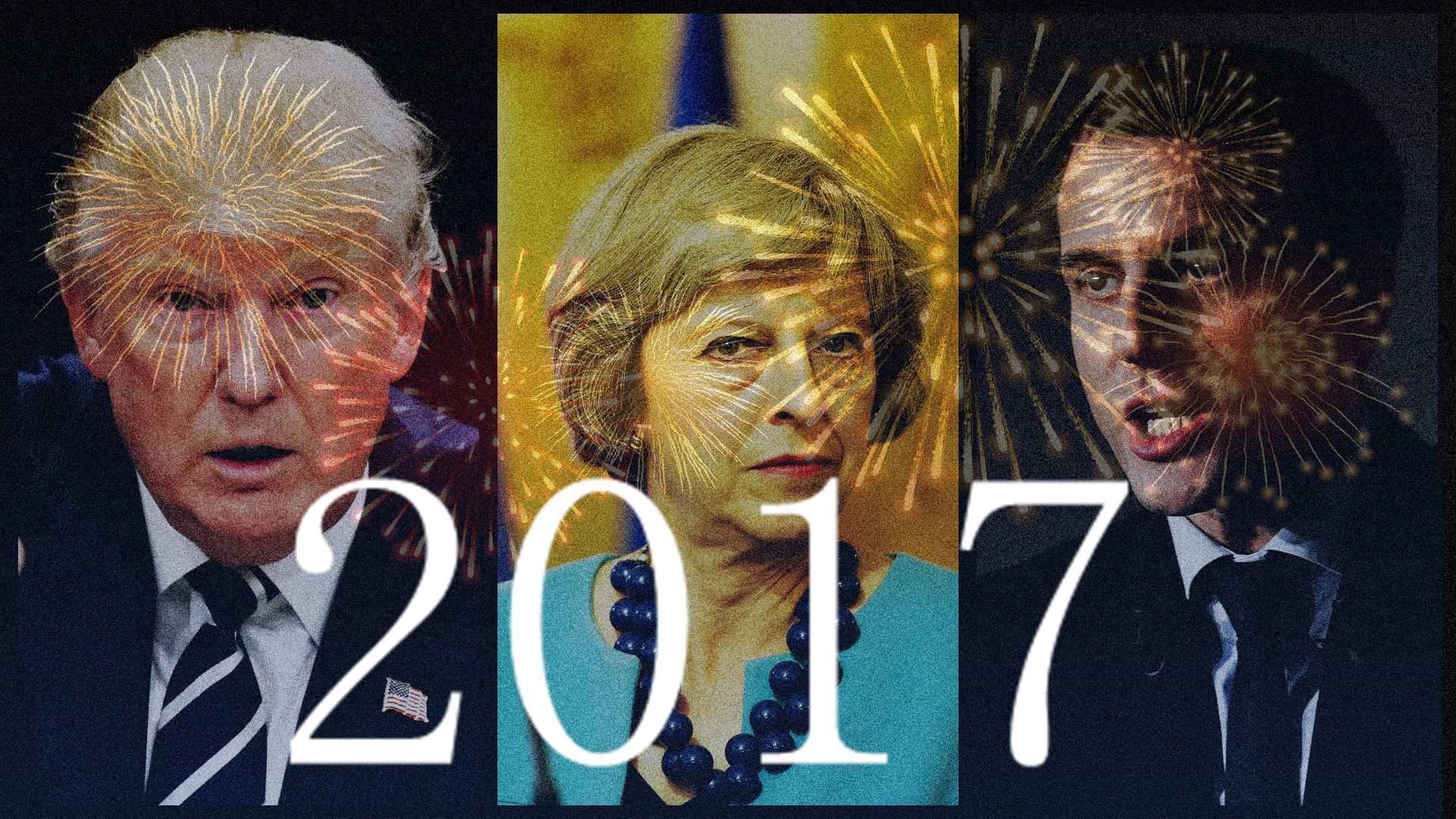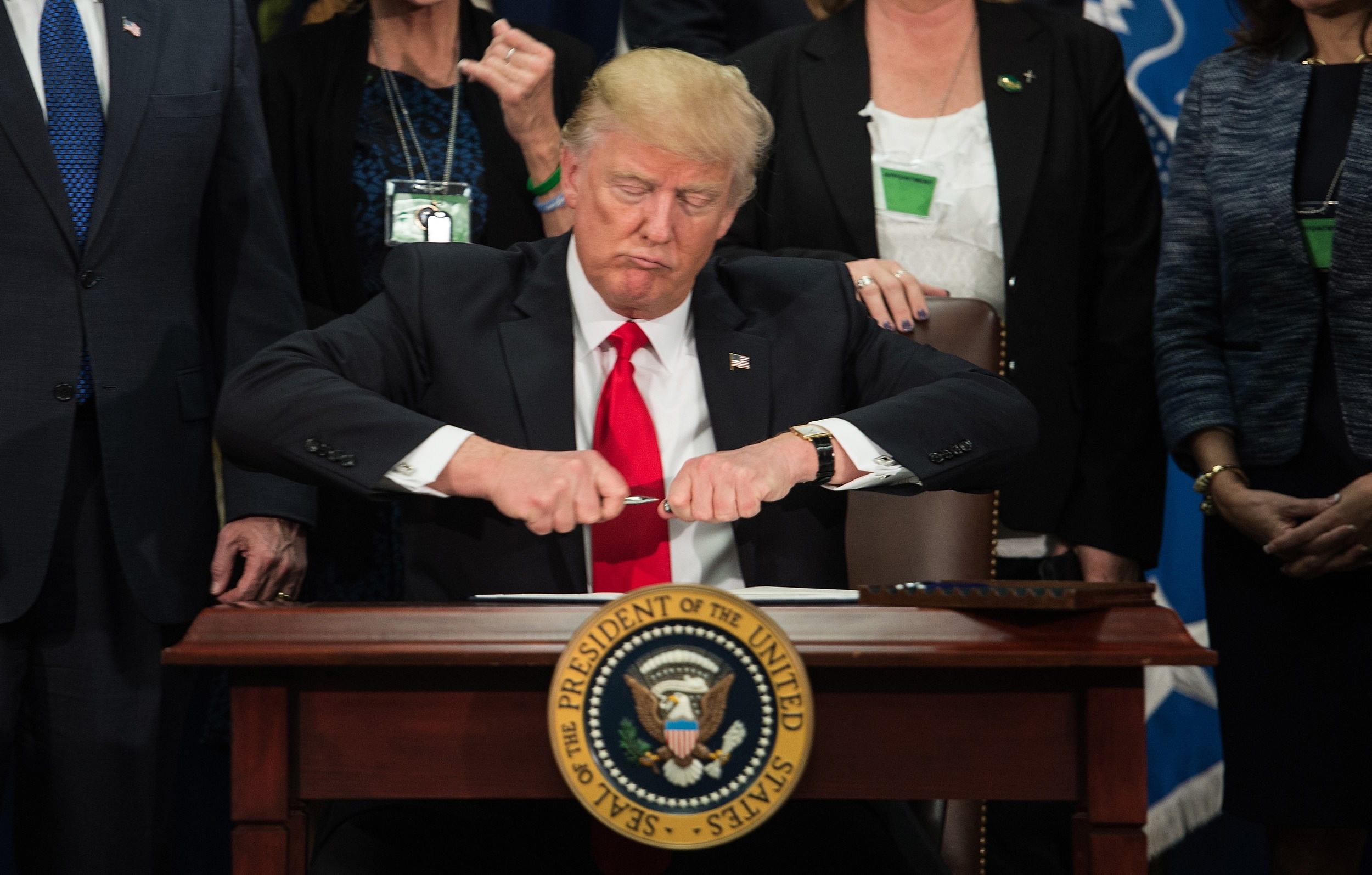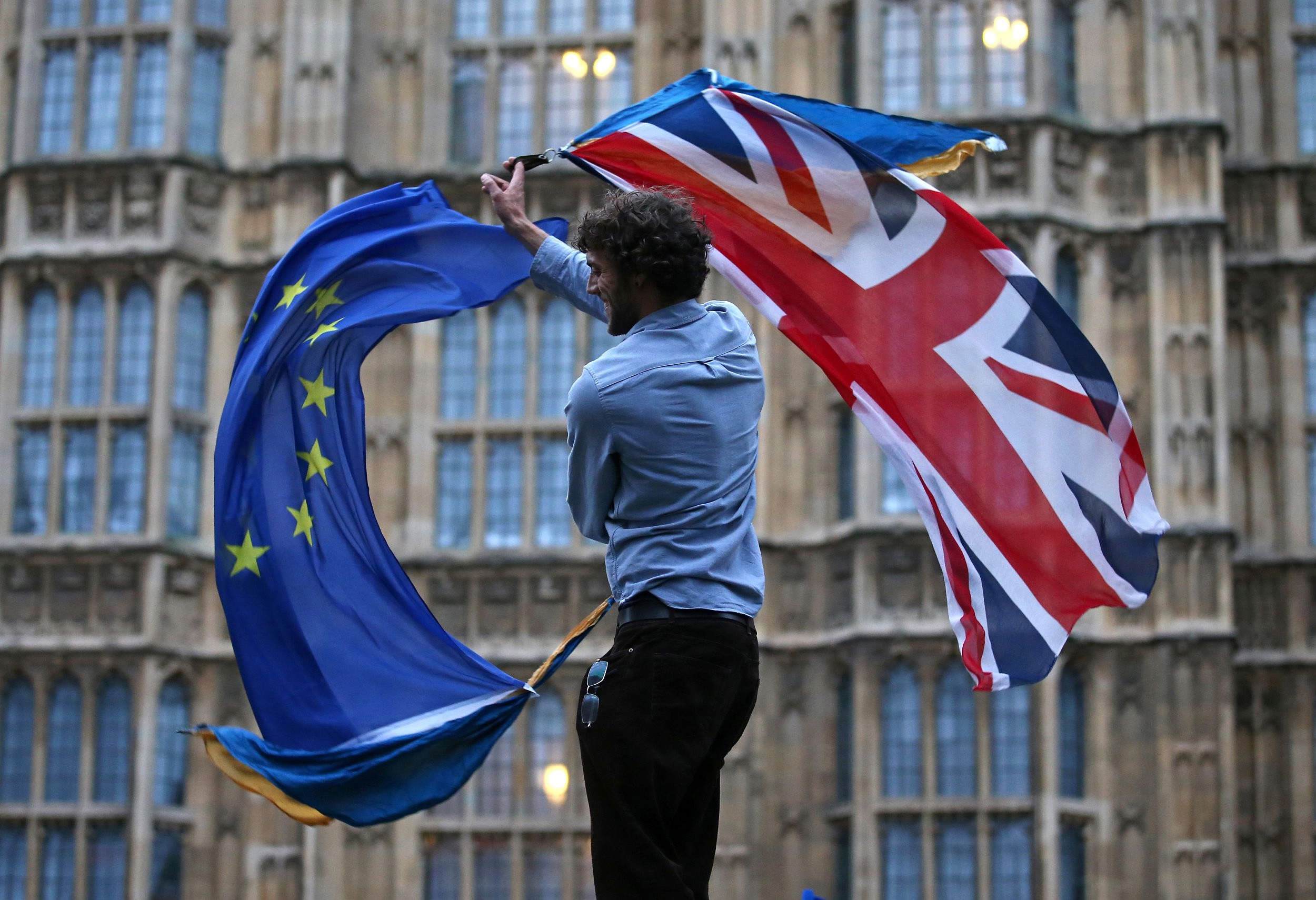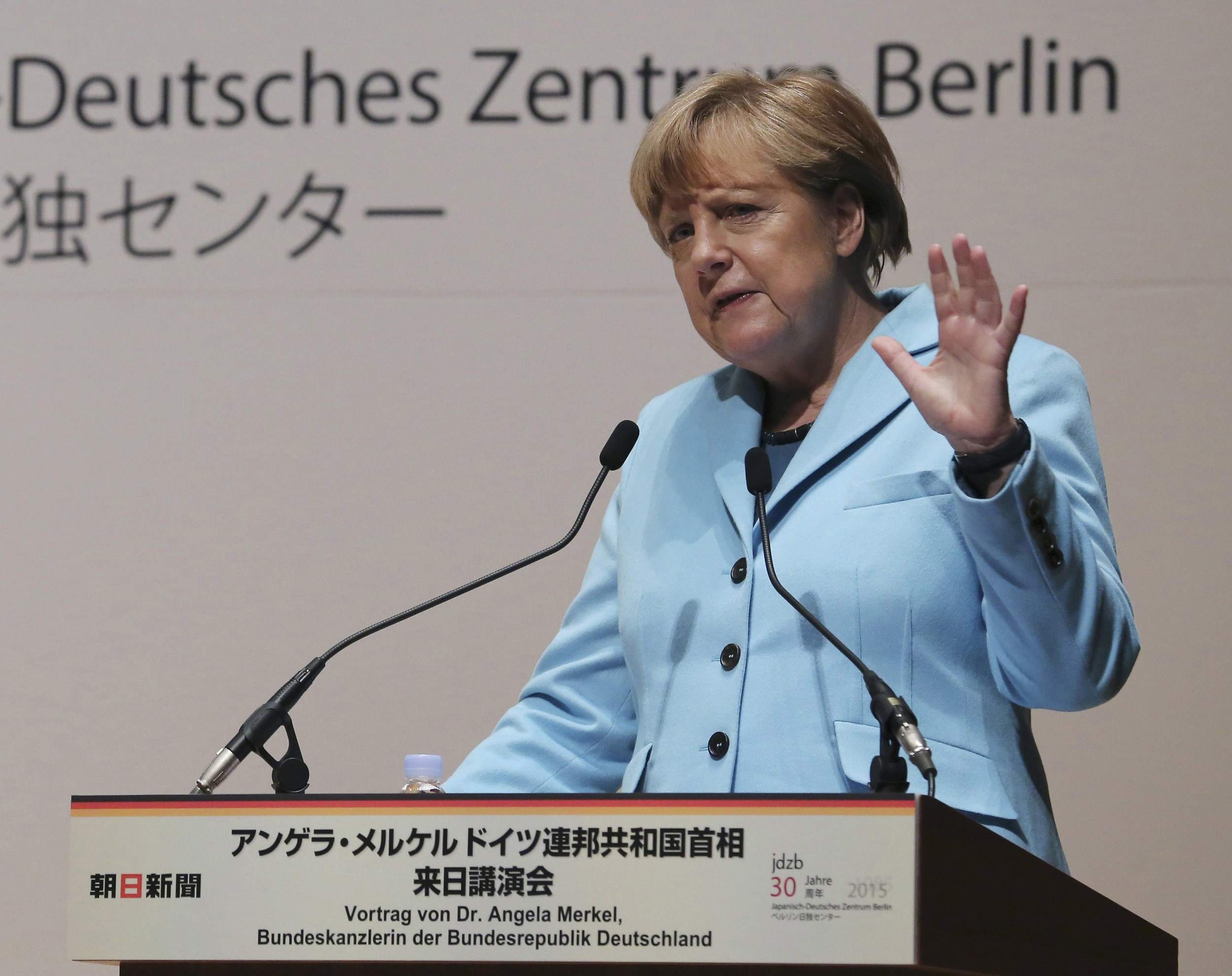
Business
18:28, 31-Dec-2017
Reasons to be cheerful: Was 2017 all that bad?
CGTN's Nicholas Moore

Was 2017 the worst year ever? Look back at the end of 2016 – the global economy watched with baited breath at a world seemingly about to buckle under the strain of Trump’s election victory, Brexit, the rise of populism in the West. The finale for 2016 saw its own flurry of economic uncertainties and steps into the unknown.
World, planet Earth, you made it to the end of 2017, you survived. There was no apocalypse or global recession. The Trump administration has caused ripples rather than waves of destruction. Brexit looks to be heading in a softer direction than once feared. And Europe has, on the most part, rejected protectionism and replaced economic concerns with hope for positive change and reform.
Trump did not cause a global financial meltdown
Crowds gathered in a cold Times Square, awaiting the 10-second countdown before the New Year's Eve ball drop, just as it has done since 1907.
As 2016 ended and 2017 began, there seemed to be a national intake of breath, 20 days ahead of the inauguration of perhaps the most controversial president in US history.
Donald Trump’s November 2016 election victory elicited headlines warning that 2017 would be disastrous and apocalyptic for the US and global economy.
“How President Trump will wreck the world economy” said The Independent, while The Washington Post led with the headline “Donald Trump and the end of history."
Paul Krugman in The New York Times said “we are very probably looking at a global recession, with no end in sight.”

VCG Photo
VCG Photo
Looking back on the past year, the initial media reaction to Trump’s victory was a little overblown to say the least. Trump has found the checks and balances of the US political system a force to be reckoned with, and his one major economic victory – one of the biggest tax overhauls in decades – has come too late to truly end the world, at least for this year.
As Trump has been keen to point out, US benchmarks are at an all-time high, employment is up and economic growth has improved – although not to the extent that he promised during his campaign.
His election victory and inauguration saw massive swings in the US currency, but the dollar’s downfall has been limited to around nine percent overall – not great but not a meltdown.
However, Trump has shown in 2017 that, throughout his presidency, he will always be unpredictable. Those who took that national intake of breath on New Year's Eve 2016 – economists, businesses, America’s poorest people and the rest of the world – still haven’t exhaled.
2018 will still be a nervous year fraught with fear over what Trump, emboldened by his victory on tax, will do next.
Hard Brexit avoided? Cautious optimism in Europe
When Britain voted to leave the European Union in June 2016, sterling plummeted overnight to a 31-year low and has failed to recover since then.
Economic estimates covering GDP growth, inflation and production have all been readjusted downwards, with the UK failing to match the same recovery and rise in living standards in the rest of Europe following the global financial crisis.

VCG Photo
VCG Photo
Yet for 2017, one of the biggest Brexit concerns was the power struggle purportedly happening behind the scenes at Downing Street – a tussle between hard and soft Brexits, between a no-deal Brexit and full access to the single market.
The general consensus in London, Brussels and other global financial centers was that a hard Brexit could be disastrous for the economy, delivering repercussions throughout the world.
The prospects for a hard Brexit have faded, with the agreement in early December between Downing Street and Brussels that enough progress had been made to move on to the next stage of talks. Fears over the Irish border came to the fore, and a last minute wobble courtesy of Theresa May’s DUP allies in Belfast was not enough to prevent the deal from coming through.
The economic outlook for Britain remains pessimistic going into 2018, with low productivity, minimal wage growth and weak inflation becoming increasingly sensitive pressure points.
However, for the Republic of Ireland, Europe and the rest of the world, Brexit does not seem as terrifying a prospect as it did one year ago.
Wave of populism stifled, but not shut down
Western Europe itself was looking down the barrel of a populist gun at the start of 2017, with elections in France, the Netherlands, Germany and Austria all featuring extremist parties and leaders who were enjoying more popularity than ever before.
The Trump and Brexit effect of 2016 loomed large, with the National Front's Marine Le Pen calling for a French exit from the European Union – potentially a final nail in the coffin of the 28-member bloc.
But yet again, things were not as bad as expected. France elected Emmanuel Macron, a centrist, pro-business candidate who has vowed to reform the EU. His partnership with German Chancellor Angela Merkel – in power again for a fourth term – is a much more promising premise than the far-right alternative that came close.
Global firm PwC expects France and Germany to achieve stronger GDP growth in 2018 of 2.0 and 2.3 percent respectively, while the entire eurozone is growing at its fastest rate in a decade.

VCG Photo
VCG Photo
And yet it was close, really close. More than one third of French voters went for Le Pen. A far right party is in the Reichstag for the first time since the Second World War, while Austria’s government has given key positions to populist lawmakers after a strong showing in the November election.
2017 was not a disaster for Europe, but something in the makeup of the once liberal continent has changed. Macron and his allies have been given a chance by voters to genuinely give them an alternative to populism – if they struggle to push through political and economic reforms in 2018 and beyond, a disenfranchised electorate will be forced to look elsewhere.

SITEMAP
Copyright © 2018 CGTN. Beijing ICP prepared NO.16065310-3
Copyright © 2018 CGTN. Beijing ICP prepared NO.16065310-3